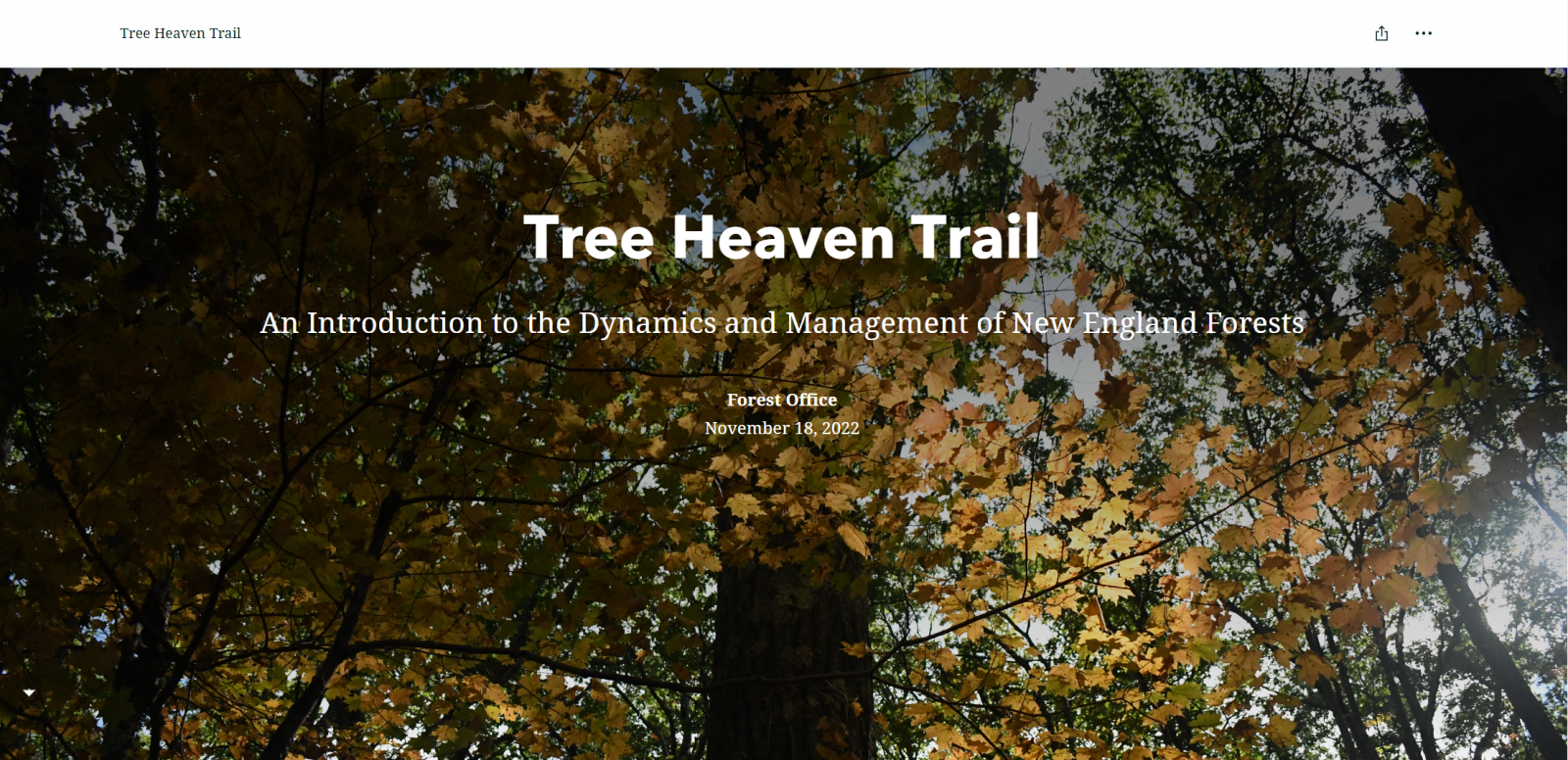Tree Heaven Trail
“Welcome to Tree Heaven. This area of Yale-Myers Forest owes its name to the many tall, healthy oak trees that grow on the relatively rich glacial till soils found here. The mile-long trail through Tree Heaven will introduce you to the complex history, ecology and management of forests in southern New England.”
The Tree Heaven trail offers an introduction to the dynamics and management of New England Forests.
Tree Heaven Trail StoryMap
The physical Tree Heaven trail is located at Yale-Myers Forest, but you can take a virtual tour by visiting our StoryMap.
The StoryMap version of the Tree Heaven Trail covers the same topics as would be discussed on a interpretive walk through the physical trail through videos, photographs, and written exploration of key concepts.
This StoryMap was made possible through the support of the Class of 1980 Fund.
The original Tree Heaven Trail was created and designed by Mark Ashton in 1988, and the first trail brochure prepared by John McKenna and Mark Ashton in 2000. There have been countless contributions to trail construction, writing, research, and design over the years from numerous students, staff, and faculty, including Marlyse Duguid, Francis Eaton, Dave Ellum, Tal Ilany, John McKenna, and Steve Prinn. A portion of the Tree Heaven Trail overlaps with the blue-blazed Nipmuc Trail, which is maintained by the Connecticut Forest & Park Association.
The Tree Heaven Trail, like all of Yale-Myers Forest, is on the traditional homelands of the Nipmuc people. For some collected resources on understanding Indigenous narratives and relationships to land in our region, please visit our working syllabus here .
The StoryMap version of the trail was created by Damaris Chenoweth, with support from Rosa Goldman, Karam Sheban, Laura Green, Marlyse Duguid, Genevieve Tarino, Tyler Stotland, Adam Houston, Sam Feibel, and Zane Weinberger. Information about the ForestGEO Plot was provided by David Woodbury. The initiative to digitize the trail was supported by a grant from the Yale Poorvu Center, the Rosenkranz Award for Pedagogical Advancement, to Marlyse Duguid and Mark Ashton.
